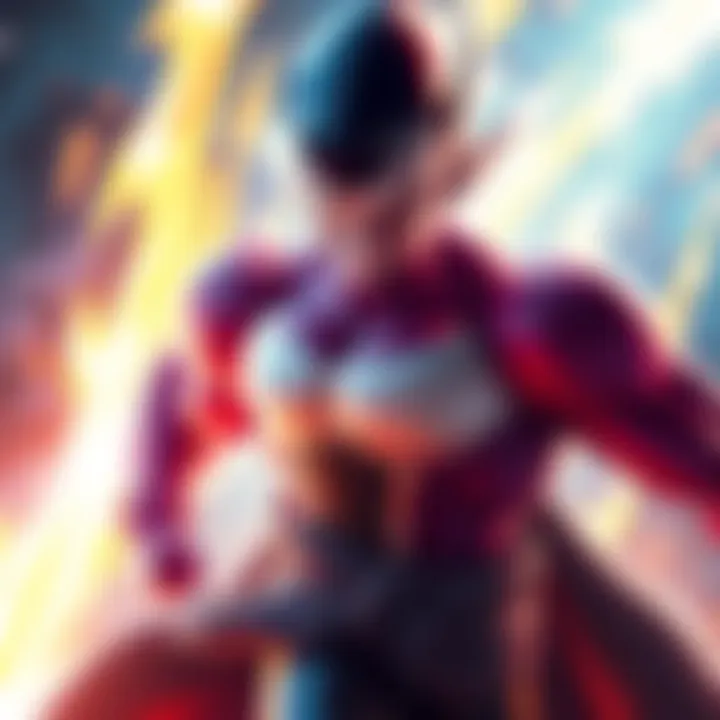Dang Frieza | Controversial Character Sparks Mixed Reactions
Edited By
Carlos Mendoza

As conversations around various anime characters heat up, an unexpected subject took center stage: Frieza. On October 19, 2025, people took to forums, contending the idea that Frieza's alleged racism could be a reason for resignation. This peculiar commentary led to a mix of humorous and serious reactions across the community.
Context of the Comments
Frieza has been a polarizing figure since his introduction in Dragon Ball Z. His actions, often deemed merciless, have historically overshadowed discussions about his character. The recent comments suggest a growing trend of highlighting issues of racism within fictional narratives, even from characters typically portrayed as villains.
Key Themes and Reactions
Irony in Racism Accusation
Some people noted the absurdity of canceling Frieza over racism when his violent actions against Saiyans have been a part of his storyline all along. One user quipped, "Firing him for saying mean things about Saiyans but not wiping out the Saiyans? Sounds like cancel culture."
Humor and Satire
Humor prevailed in many comments, with users creating imaginary dialogues. One shared a mock quote from Frieza: "I’m not racist; I hate everyone equally!" This does reflect an interesting aspect of fandom culture where humor is a coping mechanism for grappling with serious themes.
Cultural References and Parallels
Comparisons between Frieza and political figures stirred quite a response. Comments drew parallels between Frieza's notoriety and that of recent political controversies, with one stating, "Trump and Frieza are like parallel souls in different universes."
Sentiments Run the Gambit
The general sentiment in discussions was decidedly mixed. People shared laughter but also permissible critique. Some defended Frieza, indicating that the character would either be canceled for politically incorrect remarks or celebrated as a satirical figure in modern society.
"It's about time! The first words he told the Saiyans were 'Hello monkeys!' This is long overdue!" - Commenter
Key Takeaways
🔥 Mixed reactions highlight the complex nature of character morality in anime.
🤔 Humor serves as a valuable tool for engaging with serious issues in fandom discussions.
🚀 Comments draw vivid comparisons between fictional characters and contemporary political controversies.
In closing, the lively discourse around Frieza shows the evolving relationship between anime characters and societal norms. People continue to engage with these narratives in multifaceted ways that spark deeper conversation about representation, satire, and the responsibilities of creators.
Future Outlook for Frieza and Anime Character Discussions
There’s a strong chance we will see Frieza’s character evolve in future stories as creators become more aware of societal dialogues around representation and morality. Observers estimate that discussions like these could lead to more nuanced portrayals of villainous characters, combining humor with a reflection of real-life issues. With ongoing fan engagement, a transition towards deeper storytelling could resonate strongly among audiences, giving rise to characters that challenge norms rather than simply embodying them. As Frieza maintains his status in discussions, creators will likely explore themes of redemption and accountability, influencing the way fictional narratives reflect current social expectations.
A Surprising Echo from the Music Scene
A unique parallel can be drawn from the rock band, The Rolling Stones, who faced backlash for their controversial lyrics and stage personas in the 1960s. Just as Frieza's villainy sparks debates in anime, the Stones' defiance in addressing societal issues through their music also ignited moral discussions among listeners. Their journey shows how challenging characters — be it in music or anime — can inspire a cultural conversation that leads to greater awareness and change, providing insight into society's willingness to confront its heroes and miscreants.
